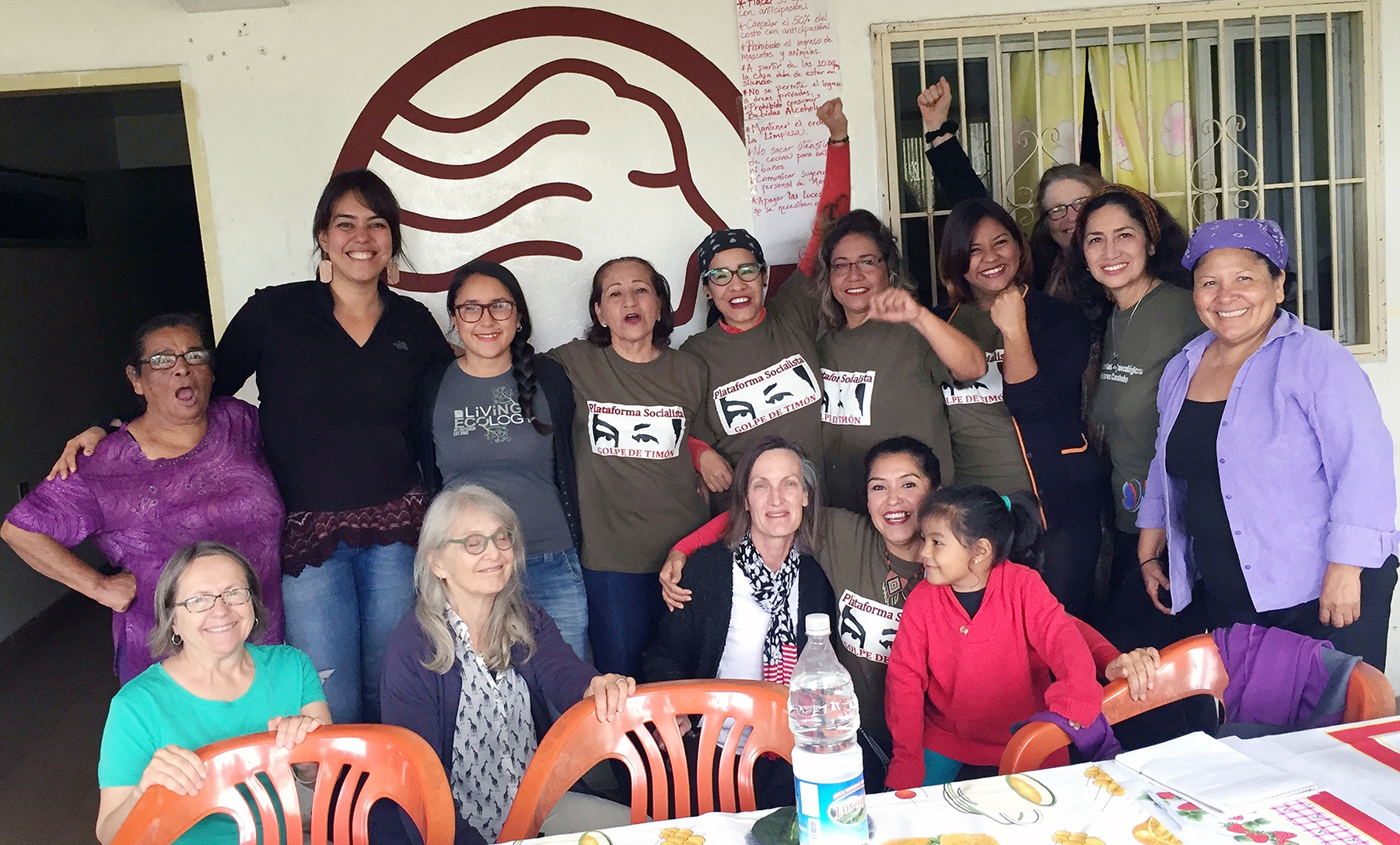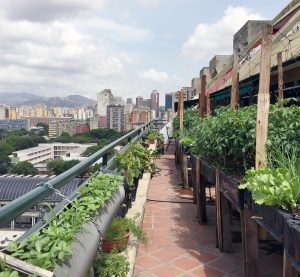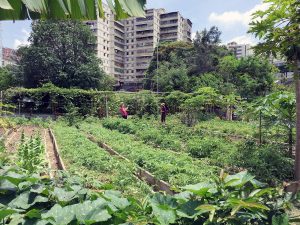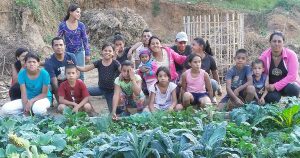Delegation to Venezuela: Sowing Food Sovereignty
Posted on July 1, 2016, by Loretto Community

Photo courtesy of Rox Monterastelli
By Rox Monterastelli
(Editor’s Note: Rox Monterastelli participated in the Task Force on the Americas delegation to meet women confronting economic war by empowering a nation. She offers us a mini action to support these women.)
Venezuela is at the crossroads of hunger. Just two years after the United Nations’ Food and Agricultural Organization praised the nation for reducing hunger by half, Venezuela today is scrambling to feed its citizens. A vicious economic war that seeks to topple the Bolivarian Revolution, the dramatic plunge in global oil prices (95 percent of the nation’s revenue) and a long dependence on food imports have led to empty food shelves and long lines of anxious citizens. The flip side of the crisis is a new awakening in Venezuela of the need to wean itself of oil dependence and food imports. Venezuela has taken on national food production like a battle cry.

Photo courtesy of Rox Monterastelli
The leaders in this urgent race to food sovereignty are the same ones who have always carried the weight of feeding their families on their shoulders: women. Women are directing the new Urban Agricultural Ministry and are leading the Back to the Conuco movement, Venezuela’s traditional version of permaculture. They have initiated seed-saver collectives, are at the forefront of the biggest farmer-to-consumer cooperative in Latin America and have organized cooperatives to process and distribute food equitably.
Our delegation met with urban farmers, co-ops, which have been working for 30 years, and young children who are learning farming techniques in the mountains. Starting in Caracas, we viewed rooftop gardens and urban farming, met members of the new Urban Farm Ministry, government officials, a representative from the Cuban Embassy and Sister Eugenia Russián, director of Fundalatin, a human rights organization. We also visited an urban farmer school. Traveling to Barquisimeto through two other states, we visited farming co-ops, food distribution co-ops and co-ops producing products as varied as canned fruit, pasta, yogurt, organic chicken feed, seed banks and worm casing soil, a type of compost, an organic by-product used to fertilize small plot gardens tended by children. Each one of these visits told its own amazing story. I will tell you just one.
Asociación Cooperativa Unidad de Producción “8 de Marzo” pasta cooperative was started in Palo Verde by five women in 1979 for the purpose of working together and countering machismo. They began by planting flowers to sell and to increase nutrition for their families, and then they started creating jams and jellies. A visiting Franciscan priest gave them an egg pasta recipe. They experimented replacing the egg with vegetables like broccoli, asparagus, spinach and pumpkin. Initially the work was to feed their families. The first group of five became friends with a cooperative in the city. They produced six kilos of pasta in 12 hours. The first hand-operated pasta maker broke, and a local man created one with a motor. Their project received an award from the Spanish government. That money funded the building and machinery used today, which can produce 1,200 kilos a day. The co-op now is run by 20 associates (15 women, five men) and sells pasta in several states. All decisions are made on consensus as everything is based on trust.

Photo courtesy of Rox Monterastelli
As the food crisis grows, flour is in short supply. The climate doesn’t produce the right kind of wheat for flour. One of the associates we met, Marian, a quality control engineer, was laid off in Barquisimeto and came back to her hometown to work with the cooperative. She loved how she felt doing this work. Her former professors are helping her with experiments using other produce such as rice for the pasta. They experimented with soy from Brazil but discarded it as the soy was GMO.
The general diet is very poor, and at times the co-op has gone three months without flour. To diversify their product, the families of the association come together on weekends to garden, raising bananas, black beans, papaya and chicken. Their relationship is with the town, not one of capitalism, but of support and sharing.
The cooperative also sponsors a food market on Saturdays in Palo Verde. The market sells government-controlled products like rice, corn flour, fruits and vegetables from local farmers. The market depends on government distribution of commodities, but increasingly less food is arriving to sell. Customers place their name in a lottery to “win” their place in line to purchase at the food market. As less food is available, this system prevents people from standing for hours in line. The group also has acrobatics, filmmaking and theater groups for children.

Photo courtesy of Rox Monterastelli
Lisa Sullivan, our host, lives in Palo Verde, is a former Maryknoll lay missioner and has lived in Venezuela more than 30 years planting trees and vegetables. She is visiting family in the United States until August. This is our opportunity for the mini-action, a seed offering. Seeds are the many items in short supply in Venezuela. You may send seeds to Lisa at her U.S. address, and she will take them back to Venezuela. If interested in this action, email me at [email protected] for Lisa’s address and more information.
